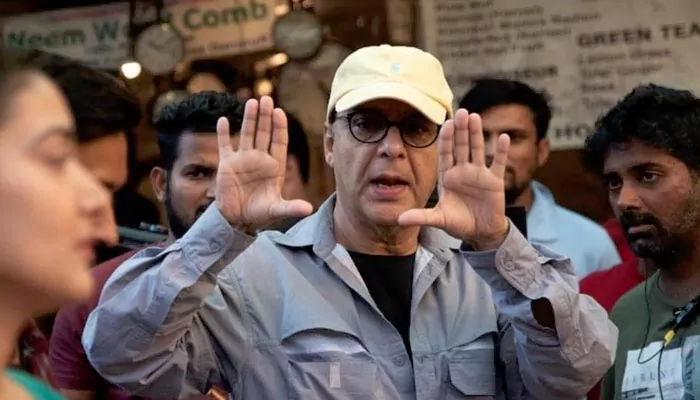
A filmmaker who never bowed to trends, Chopra’s legacy lies in telling stories that carried both truth and tenderness, leaving audiences moved and transformed
Vidhu Vinod Chopra was born on September 5, 1952, in Srinagar, Kashmir. His roots in the valley gave him an early sense of storytelling—stories shaped by silence, conflict, and the beauty of the surrounding landscape. That sensitivity is reflected in his films, which consistently feature a strong emotional core. Chopra trained at the Film and Television Institute of India (FTII), where his student short Murder at Monkey Hill won accolades. From the very start, he stood apart as someone who wanted to do more than entertain. He wanted to make cinema that mattered.
When Parinda released in 1989, it was unlike anything Bollywood had seen. Dark, intense, and brutally honest, it told the story of crime in Mumbai with a rawness that shocked audiences. Nana Patekar’s chilling performance, Jackie Shroff’s restraint, and Anil Kapoor’s turmoil made it an unforgettable experience. Chopra’s courage in breaking away from melodrama gave Hindi cinema its first true gangster drama. The film went on to win National Awards and remains a benchmark of realism. With Parinda, Chopra showed that Bollywood could stand tall against world cinema.

Chopra did not stop at one landmark film. In 1985, he established Vinod Chopra Films, a banner that became synonymous with both creativity and credibility. Under it, he directed and produced films such as Khamosh (1985), 1942: A Love Story (1994), and later, Mission Kashmir (2000). Each of these films carried his stamp—cinematography that lingered, stories that spoke of love and loss, and a refusal to compromise on quality. Even when commercial results varied, the sincerity of his vision never did.
The new millennium saw Chopra step back from directing and focus more on producing. His collaboration with Rajkumar Hirani gave Hindi cinema one of its most beloved series—the Munna Bhai films. Munna Bhai M.B.B.S. (2003) was more than comedy; it was about healing, kindness, and second chances. Its sequel, Lage Raho Munna Bhai (2006), made Gandhian values relevant again for a younger generation. Chopra’s eye for nurturing such stories proved his gift was not only in directing, but in recognizing voices that could change cinema.
In 2009, Chopra produced 3 Idiots, a film that touched the hearts of people across the globe. It challenged the rigid structures of education and celebrated curiosity, friendship, and the courage to follow one’s passion. Aamir Khan, R. Madhavan, Sharman Joshi, and Kareena Kapoor brought warmth to a story that remains deeply relatable. The film was a blockbuster, but its true achievement was in sparking conversations in families, schools, and workplaces. Chopra’s belief in meaningful cinema once again proved right.
Chopra has never confined himself to one genre. Under his banner, films such as Parineeta (2005), Ferrari Ki Sawaari (2012), PK (2014), and Sanju (2018) all found their place in cinematic history. In recent years, Shikara (2020) reflected on the painful exodus of Kashmiri Pandits, while 12th Fail (2023) brought audiences the inspiring story of resilience and hope. These choices show his continued faith in stories rooted in truth. Chopra’s films may differ in tone, but they always ask the audience to feel, to think, and to remember.
Vidhu Vinod Chopra is not only a filmmaker but also a pioneer who believed in the power of cinema as reflection and reform. He made crime films more real, comedies more heartfelt, and dramas more personal. His journey serves as a reminder that films can shape the way we perceive ourselves and our society. On his birthday, it feels right to pause and honor a man who gave us films that will be spoken of for generations.